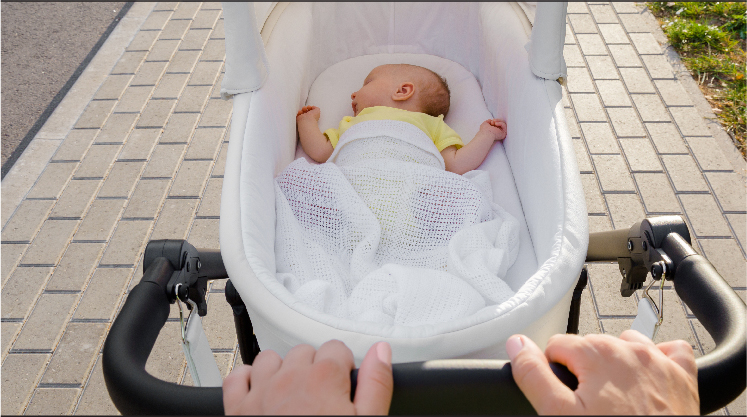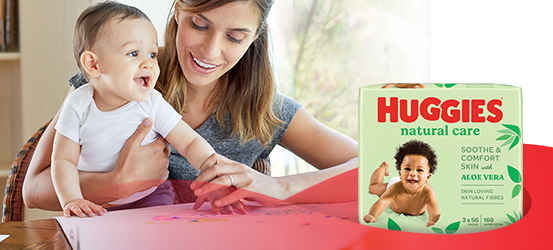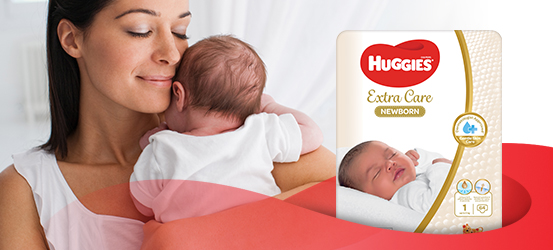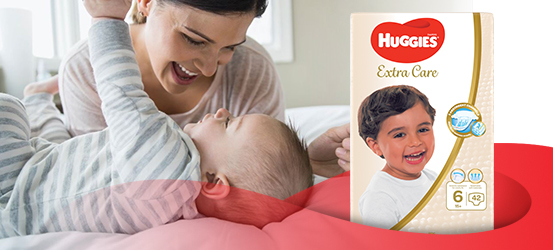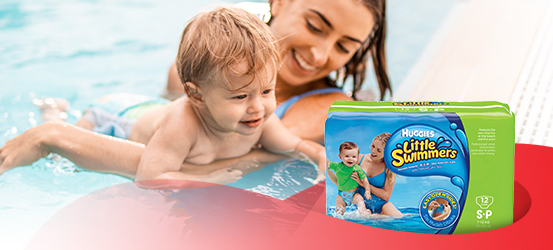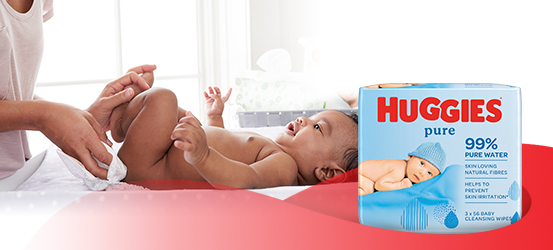Try not to compare what you are doing with others. Although you may not always feel 100% confident with what you are up to, your baby won't mind. Their needs are still very basic at this early stage and you'll find as long as they are not hungry, get enough sleep and have regular nappy changes they will be fairly content.
Try also, not to set you own expectations so high they are unachievable. The best thing you can do to care for your baby is to look after yourself. Remember to eat 3 meals a day and snack in-between, drink plenty of water and aim to have a rest during the day to make up for broken sleep overnight.
Feeding
Expect your baby to still need at least 6 feeds/24 hours at 8 weeks. Many babies go through a growth spurt at this age and demand to be fed more frequently.
Sleeping
Some babies are sleepier than others and follow a regular, predictable routine of wakefulness and sleep. Others are more alert and seem to resist all their parent's attempts to get them to go to sleep. The only guarantee about babies' sleep pattern is that there is none. You cannot control your babies' sleep, when they go to sleep or even how long they sleep for. Your responses to their sleep and settling are however under your control.
It can be worthwhile, even in these early stages to try to place your baby into their cot awake so that they learn how to go off to sleep on their own. Babies who are always asleep when they go into their cots don't learn the skills involved in self settling. They become dependent on their parents help to get them off to sleep and then expect the same cues or prompts each time they progress through lighter phases of sleep and wakefulness.
Check the sleep articles on the Huggies website and follow some suggestions for encouraging self settling. Remember though, if what you are doing to settle your baby is working for you both, don't be concerned.
Behaviour and Development
Your baby will be holding their hands together now, but their movements will still be a little random and flinging. They won't be able to hold a rattle just yet but that time isn't too far away. Your baby will be losing their grasp reflex by 8 weeks and this will soon be replaced by a deliberate grab and hold.
Lots of smiles, coos, eye contact and mouthing movements from your baby this week, especially when you are up close and talking to them. Your loving, positive stimulation will help your baby to develop their social skills and remind them that they are part of a human group. If you have older children, encourage them to talk to the baby and involve them in gentle play. Your baby will love the interaction with their siblings and through your own care giving; your older children will learn what's involved in nurturing and caring for young babies.
Supervised tummy time each day during your baby's wakeful periods will help them strengthen their neck and chest muscles. Get down onto the floor yourself and position some toys around so they can lift their head and focus on them. Babies of this age don't have good vision but are drawn to contrasts. Toys with black, white and red as their primary colours will be clearer to your baby.
Look for your baby "tracking" your face with their eyes. This is an important stage of visual development and will lead to other, more advanced skills in focusing. Consider getting a baby gym – an ideal toy for this age group. Set up a little play area on the floor away from main traffic areas. Make sure it is still in a clearly visible place for you to keep an eye on your baby.
Crying
Your baby may be a little more unsettled this week, prone to fits of crying and distress. It can be hard to settle babies of this age, who, because of their crying, can easily become overtired and hard to soothe. You are likely to find their crying peaks in the mid-morning or in the late afternoons.
When parents have experienced a few consecutive days of their baby being unsettled, they can become anxious just thinking about how to best deal with it. Make an appointment to see your healthcare professional or go to your local clinic to get some advice. Ask to be shown different holding positions, ways to pat and soothe and collect some tips sheets on the best ways to calm a restless baby.
Routine
Your days are still probably dictated by your baby's demands, leaving you little time for much else. If you have always prided yourself on a clean and organised house, this may be a challenging time for you. There can seem to be no end to the list of jobs that need doing and each day seems much like a template of the ones that have gone before. As exciting as it is, young baby care can become very tedious and wearing. This is why it is so important to try to do something a little different every couple of days.
Although you may not have much energy, try to go for a walk-even if it is to the local shop for a bottle of milk. Housework does have the tendency to eclipse real life, which is why it is so important to keep it all in perspective.

